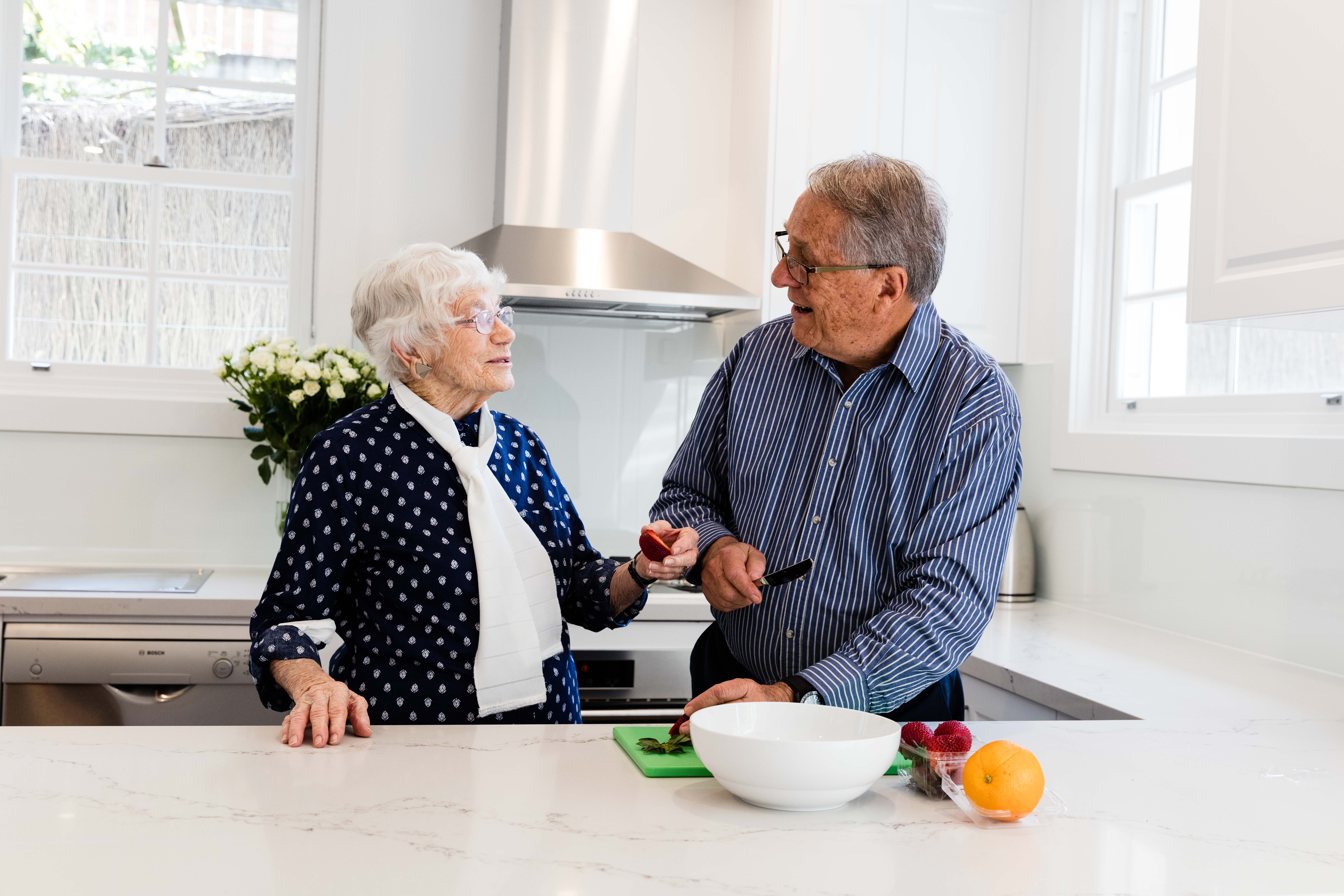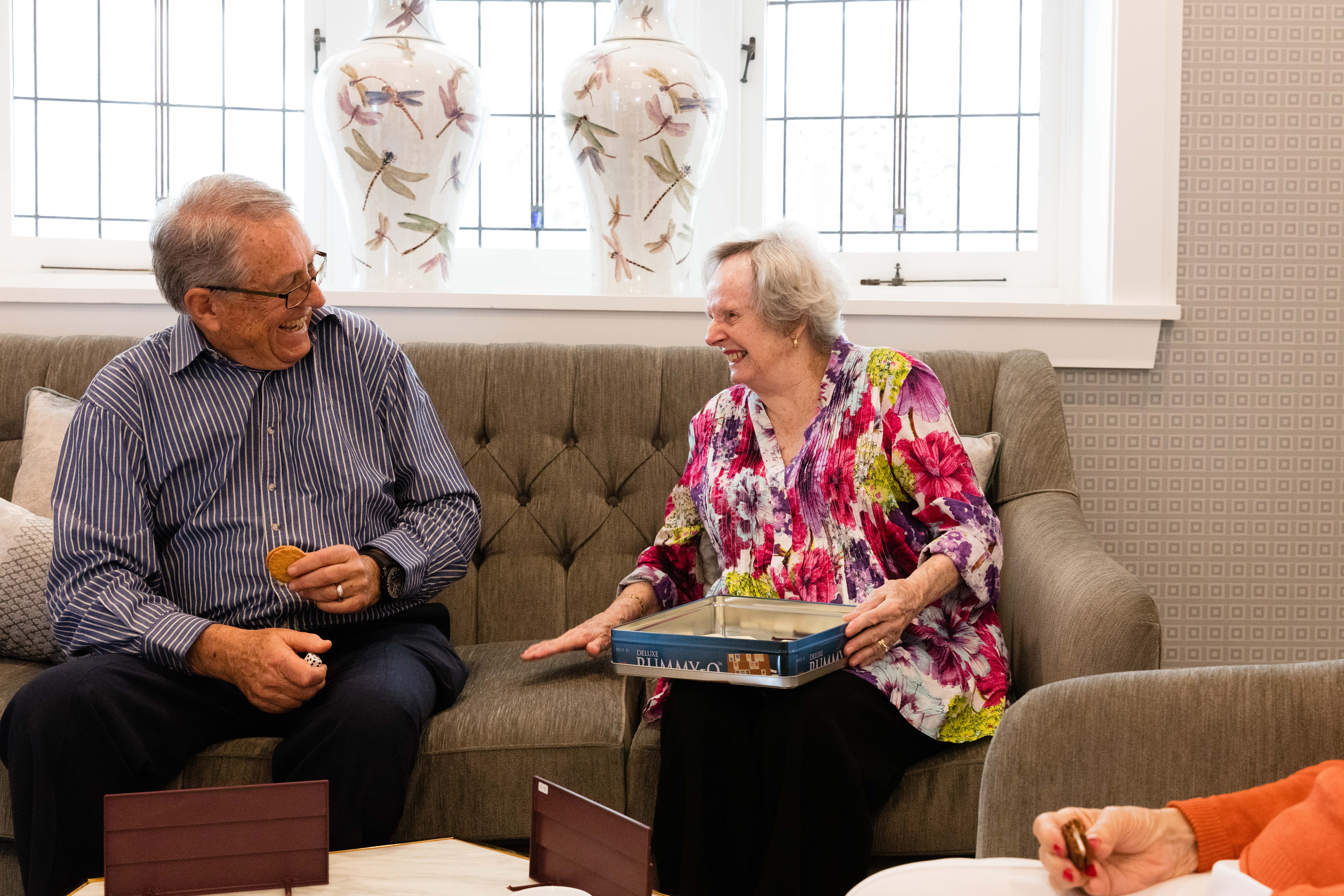If you’re looking for the best care options for a loved one living with dementia, you may be wondering if the assisted living care offered in retirement villages is suitable to meet their ongoing needs.
Understanding the care requirements of your spouse, parent or family member can make finding the right dementia care option a little less daunting. It’s important to understand that there’s no one-size-fits-all formula when it comes to dementia care, as each person’s symptoms can present differently. It’s also important to note that the care needs of people living with dementia can change over time as their symptoms progress. Finding dementia care that covers a spectrum of needs is the best way to ensure their wellbeing in the future.
The question is: do retirement villages offer specialist dementia care to meet the assisted living and wellbeing needs of your loved one?
Retirement Villages Specialising in General Assisted Living
Most retirement villages provide a tight-knit community setting for older Australians, with a focus on continuing to live independently. Some, but not all, retirement villages offer onsite staff that can provide basic assisted living where required. These assisted living duties are generally centred around supporting residents with day-to-day routines and activities, and may include:
- Assistance with meal preparation
- Cleaning
- Help with bathing
- Personal care
- Toileting
- Dressing.
While some retirement villages may be able to provide dementia care for a person with very early symptoms, in most cases specialist dementia care is the best option long-term.
Difference between General Assisted Living and Specialist Dementia Care
People living with dementia have unique needs. Some people may have trouble remembering how to do simple daily tasks, such as preparing breakfast or getting dressed, while others with more progressive symptoms may become anxious or frightened when faced with routines they can no longer manage on their own.
General assisted living care aims to help people to retain their independence with limited task assistance. The carer to resident ratios required for assisted living are generally low, with each carer being able to see and assist a large number of residents – each for a limited amount of time.
Specialist dementia care, on the other hand, takes into account the unique needs of people living with dementia and seeks to provide support to help that person retain as much independence as is safely possible, while also supporting their physical and emotional wellbeing. People with more progressive dementia symptoms often require more specialist, one-on-one care and supervision. As a higher level of care and more one-on-one time is required for specialist dementia care, carer to resident or patient ratios are generally much higher.
At Group Homes, our carer to resident ratio is 1 to 3. This helps us ensure that one carer is able to spend more time with each resident.
Specialist Dementia Care in Group Homes
Designed to bridge the gap between the type of assisted living care offered in retirement villages, and the specialist care offered in dementia care units, Group Homes dementia care offers specialist dementia care in a home-like and familiar environment, with high carer to resident ratios.
Offering specialist care from fully trained staff, group homes are ideal for people with early-stage dementia symptoms who want to maintain their independence, but still be supported with specialist care as their symptoms progress.
Learn more about the Group Homes Australia dementia care difference by giving us a call on 1300 015 406.







0 Comments